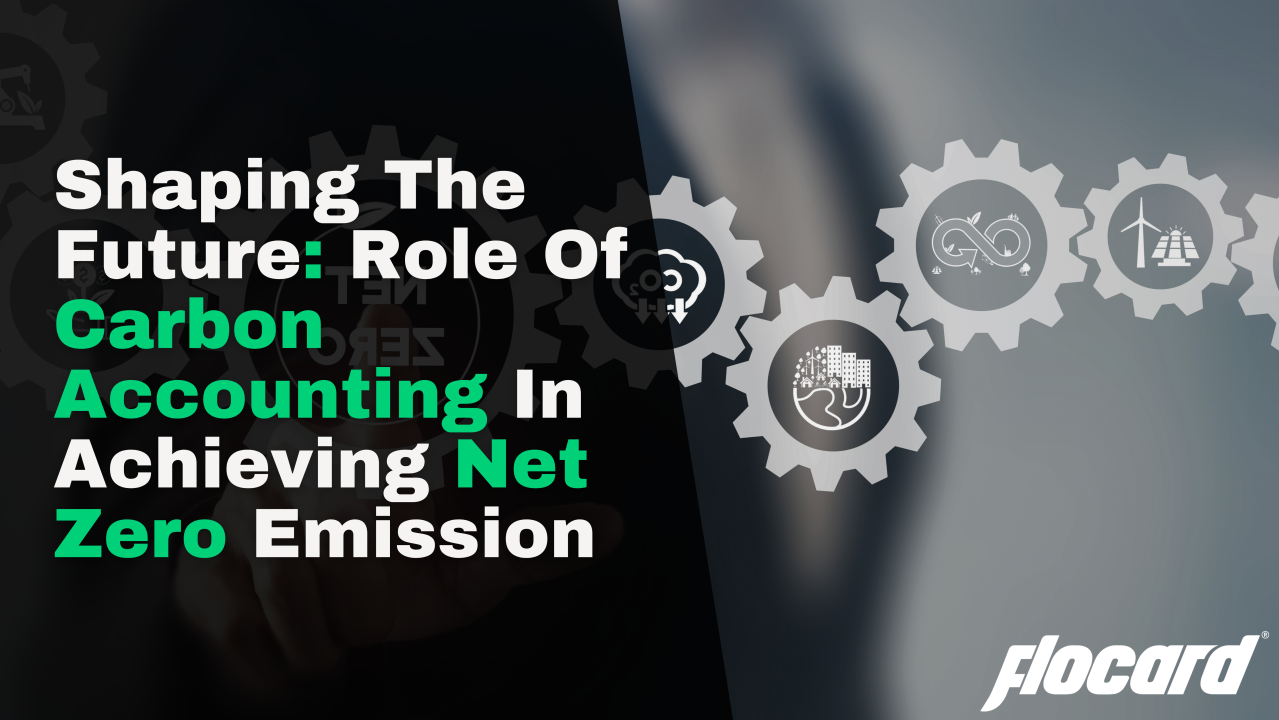Navigating the Path to Net-Zero: The Critical Role of Carbon Accounting

The Role of Carbon Accounting
Carbon accounting is becoming an essential strategy in the fight against climate change, aiding organizations in achieving sustainability and net-zero emission targets. This process involves calculating the total amount of greenhouse gases (GHGs) emitted directly and indirectly, contributing to global warming and climate change.
It enables organizations to monitor their environmental impact and implement effective strategies to mitigate their carbon footprint while advancing towards more sustainable practices. By pinpointing emission sources, carbon accounting provides a detailed framework for establishing and achieving emission reduction targets, aligning with international standards and assisting global strategies to mitigate the climate crisis worldwide. Achieving net-zero emissions targets has become crucial to reducing global temperature increases and protecting our planet for future generations.
What Is The Nexus Between Carbon Accounting And Net Zero Emission Goals?
Carbon accounting serves as the framework for establishing and achieving net-zero targets by providing accurate data and information to quantify, track, and reduce emissions. It enables organizations to analyze their emissions patterns, identify high-impact areas, and set clear emission reduction targets aligned with net-zero goals. When organizations establish carbon accounting strategies to become more sustainable, it helps them align their reduction targets with overall revenue goals.
Integrating carbon accounting into everyday practices such as managing supply chains and manufacturing stages allows organizations to reduce emissions, use resources more effectively, and enhance transparency and accountability. This aids stakeholders in tracking progress towards net-zero targets and making informed decisions. As organizations commit to achieving net-zero emissions goals, carbon accounting stands as a benchmark to address the global climate crisis by supporting policies and market mechanisms like carbon pricing and trading to offset emissions.
Embracing Carbon Accounting for Net Zero Targets
Businesses are using carbon accounting as an approach to track and offset their emissions toward achieving net-zero, mitigating the adverse effects of climate change. This allows businesses to reduce their impact, enhance their reputation, and create sustainable value by accurately auditing and managing strategies and quantifying emissions patterns to reduce their carbon footprint. Many companies, including IKEA, Apple, Microsoft, TCS, Wipro, Infosys, and Mahindra & Mahindra, have implemented carbon accounting strategies to control their emission patterns and aim to achieve net-zero emissions throughout their supply chains by 2030-2040. Apple, for instance, employs an accurate carbon accounting method to monitor emissions associated with its devices and activities.
By investing in renewable energy projects and manufacturing techniques and promoting energy-efficient practices from the procurement of raw materials to the disposal of products, these companies aim to mitigate climate risks, achieve net-zero emissions targets, and enhance their popularity, thereby creating long-term value for stakeholders.
Government Framework Toward Net-Zero Emission
Government regulations and policies provide companies with frameworks and encouragement to track, report, and reduce their emissions. Carbon pricing, including carbon taxes and Carbon Trading Systems, are governmental schemes to address climate change by setting a tax rate on carbon emissions. By pricing emissions, governments allow companies to lessen their carbon footprint or risk financial penalties, and companies can purchase or sell emissions as permits or allowances. Additionally, mandatory carbon emission reporting requires companies to submit their emission data across different scopes, increasing transparency and accountability among stakeholders and helping governments assess progress toward net-zero emissions targets.
Conclusion
Carbon accounting plays an essential role in achieving net-zero emissions targets and transitioning to a low-carbon economy. It enables informed decision-making and enhances sustainability policies by providing strategies for measuring, tracking, and controlling emission patterns. Collaboration among companies, governments, and stakeholders is essential to accelerate progress toward a sustainable future by encouraging innovative practices, implementing renewable energy, and taking actions together against climate change to achieve net-zero emission targets and create a more sustainable world for future generations.
Partner with FloCard to transform your sustainability goals into action. Together, we can drive meaningful progress towards net-zero emissions through tailored strategies that fit your unique needs. Let's build a greener, more sustainable future today. Contact us to start your journey to carbon neutrality.
